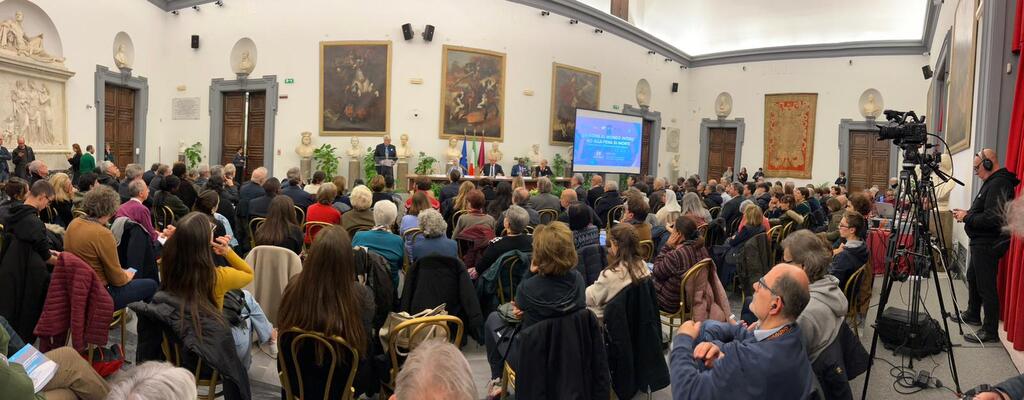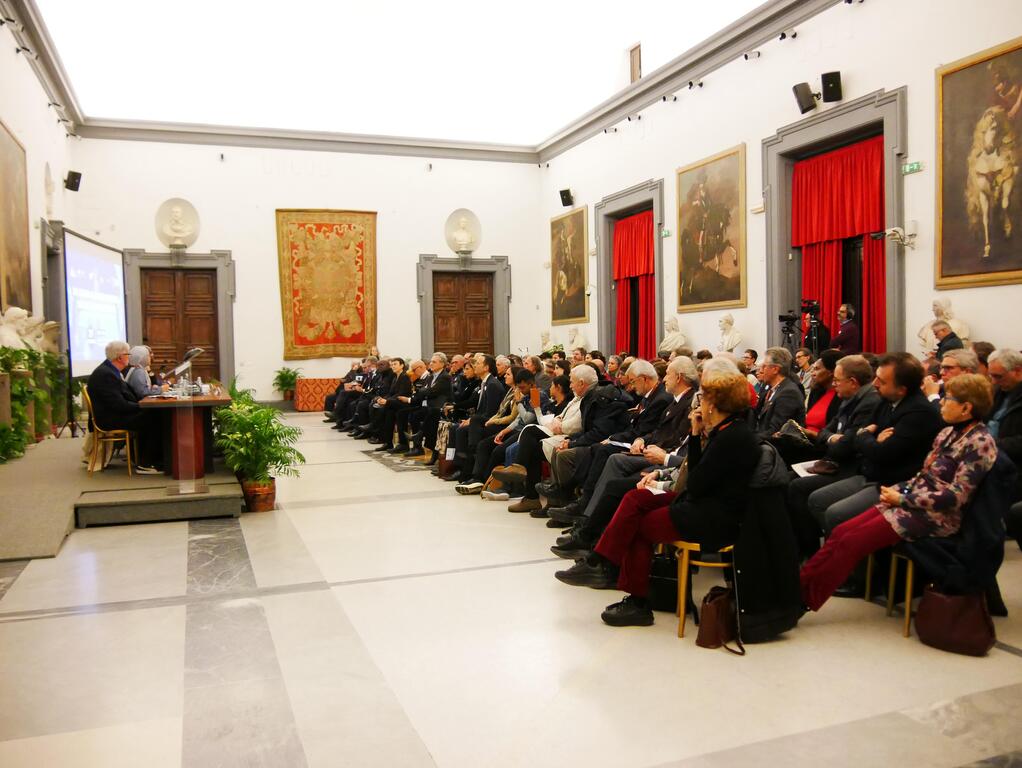The Community of Sant'Egidio organised the international conference "From Rome to the world. Cities for life, cities against the death penalty" on November 29 this year. Representatives of the worldwide battle against the death penalty took the floor in the splendid setting of the Sala della Protomoteca of the Municipality of Rome, among them also a former death row prisoner, who lived on death row in Alabama before being recognised as innocent.
Mario Marazziti of the Community of Sant'Egidio called attention to the seriousness and inhumanity of the death penalty, with particular reference to the introduction of the nitrogen hypoxia method of execution in states such as Alabama, Mississippi and Oklahoma. He pointed out the contradiction of this method, considered too cruel even for animals, but legalised for human execution. Marazziti also addressed broader issues, such as the refugee crisis and the increase in executions worldwide, emphasising the need for justice that respects human life and dignity. He highlighted the success of the international campaign against the death penalty, indeed the number of countries that have abolished this practice has increased significantly in recent decades. In conclusion, he appealed on behalf of the Community of Sant'Egidio for President Biden to commute all death sentences on US federal death row.
He was echoed by Suzana Norlihan Binti Alias, a Muslim activist against the death penalty in Malaysia, who explored the ethical and legal complexities of the death penalty. Actually it represents an extreme punishment that divides societies and raises profound moral questions, due to its irreversible nature and the risk of unjust sentences, especially for marginalised communities. She stressed the importance of considering people's stories behind the statistics and reminded that there are lives, families and personal stories behind every number. Questioning the effectiveness of the death penalty in combating crime, she proposed instead compassion and understanding as true tools of justice. She argued that rehabilitation programmes, educational initiatives and restorative justice, in a country like hers, Malaysia, where the death penalty is still in force, can lay the foundation for comprehensive social rehabilitation and true crime deterrence.
Gary Drinkard, exonerated from death row in Alabama, told his dramatic story: in 1993, his serene happy family life changed into a nightmare following a police raid on his home, when he was found in possession of a small amount of marijuana and falsely accused of murder and sentenced to the electric chair. During his time on death row, Gary faced the harsh realities of the justice system, he witnessed despair, lack of trust and hope, and the suicide and insanity of many of his fellow inmates. After five years, in 2001, thanks to the support of competent lawyers who proved his innocence, Gary was exonerated. He emphasised the importance of the support he received from his pen pals, otherwise he would have lost his mind. After his release, Gary tried to rebuild his life, and decided to share his story to bring to light the atrocities of the death penalty. He finally mentioned the case of Kenneth Smith, a man sentenced to death, for whom liquid nitrogen is to be used as a method. There is an urgent need for collective action against the death penalty, the fight is not just for the life of one person, but for the lives of many. Sign the appeal for Kenneth Smith
The Mayor of Rome, Roberto Gualtieri, expressed strong support for the campaign against the death penalty during the event organised by the Community of Sant'Egidio. Stressing the importance of a constant commitment, he announced the lighting of the Colosseum as a symbol of hope and defence of human rights. "It is not just a commemorative day, but an international civil commitment," said Gualtieri, highlighting the irreversibility and miscarriages of justice linked to the death penalty. He called on everyone to support the proposed moratorium at the United Nations, emphasising Rome's role as a city of peace and justice.
The last speaker, Emile G. R. Nakombo, mayor of Bangui in the Central African Republic, underlined the importance of using 'good' to extinguish 'evil', especially when in power. Describing the crisis in his country, he attributed it to leaders unable to 'put out the fire' of violence and conflict, rather than religious differences. The situation has improved, he said, thanks to the intervention of the Community of Sant'Egidio and the leadership of a president who shares humanitarian values. The abolition of the death penalty in his country is clear proof that it is possible, even in difficult situations, to build a more just and compassionate society.
The two-day event of Sant'Egidio continues on 30 November, with the lighting of the Colosseum and hundreds of monuments around the world to say Yes to life and No to all forms of death penalty.
VIDEO















